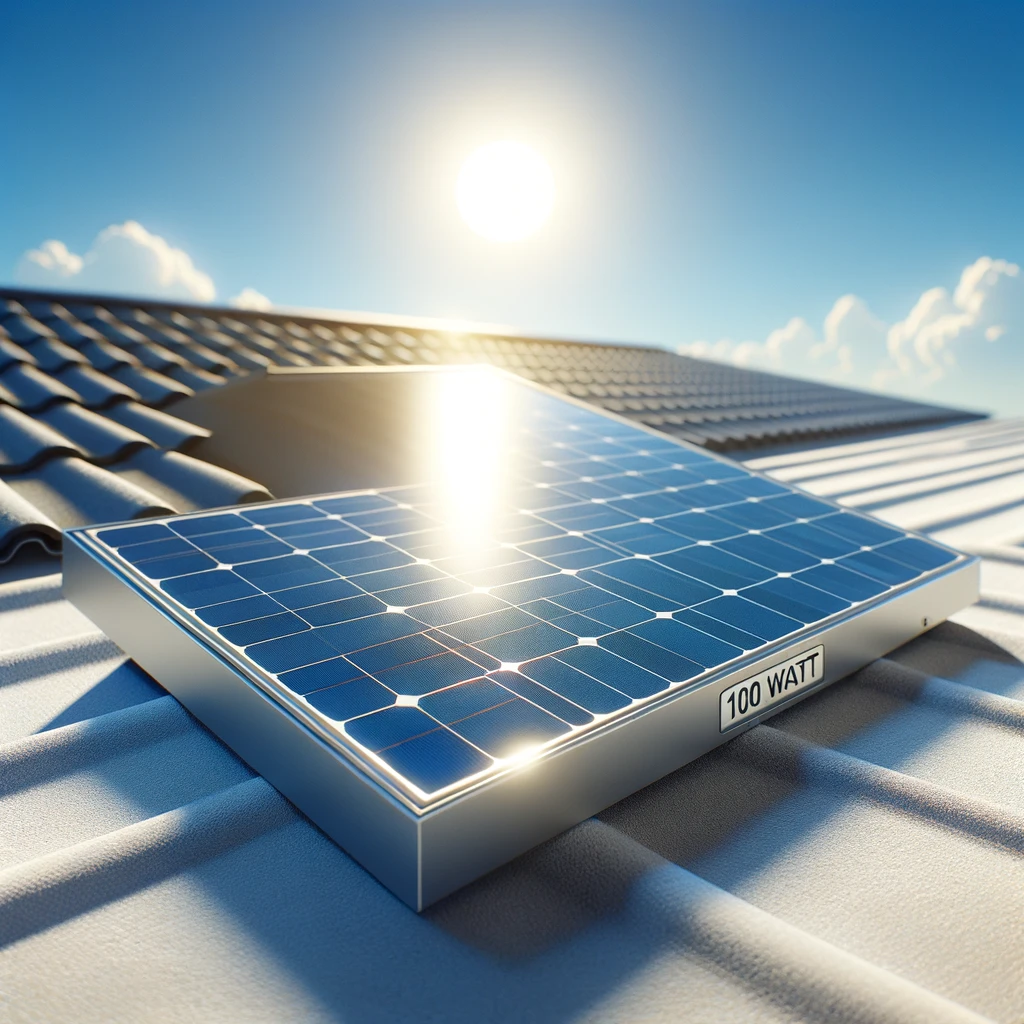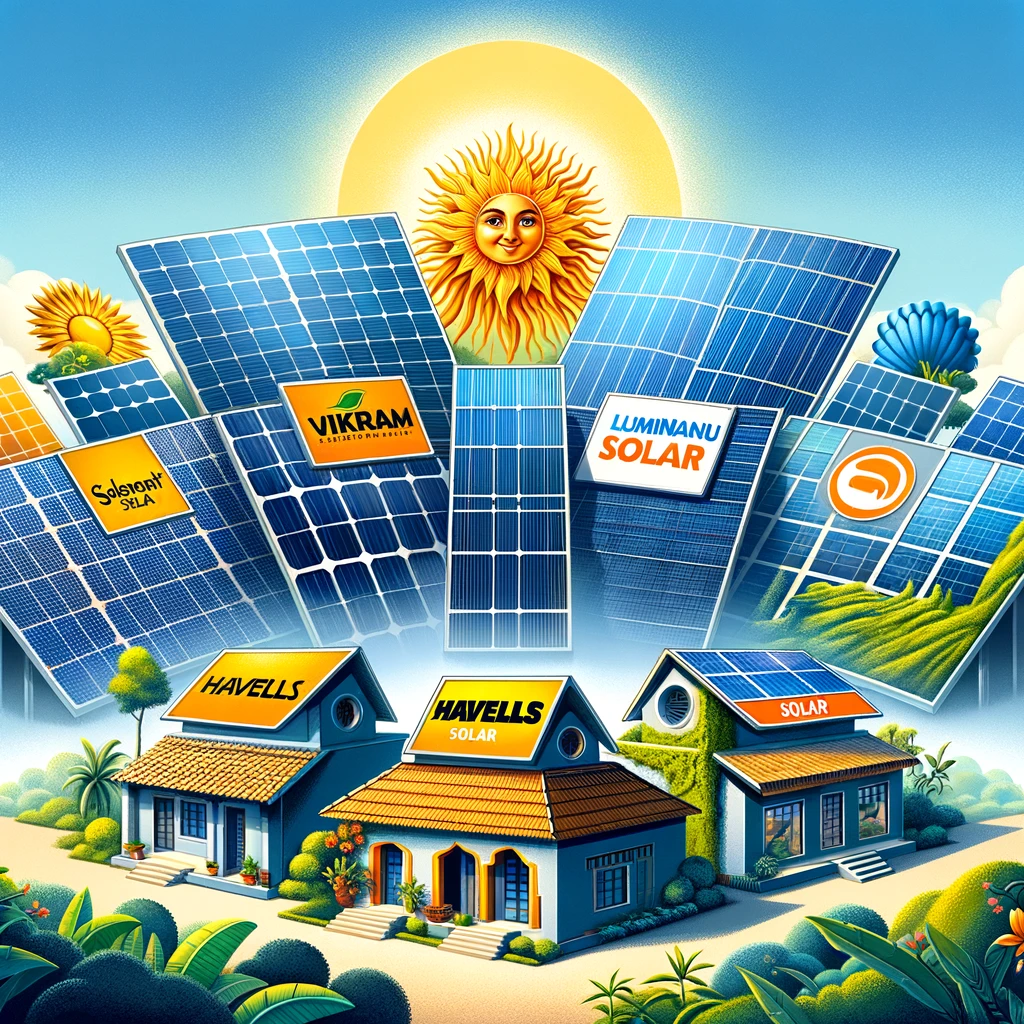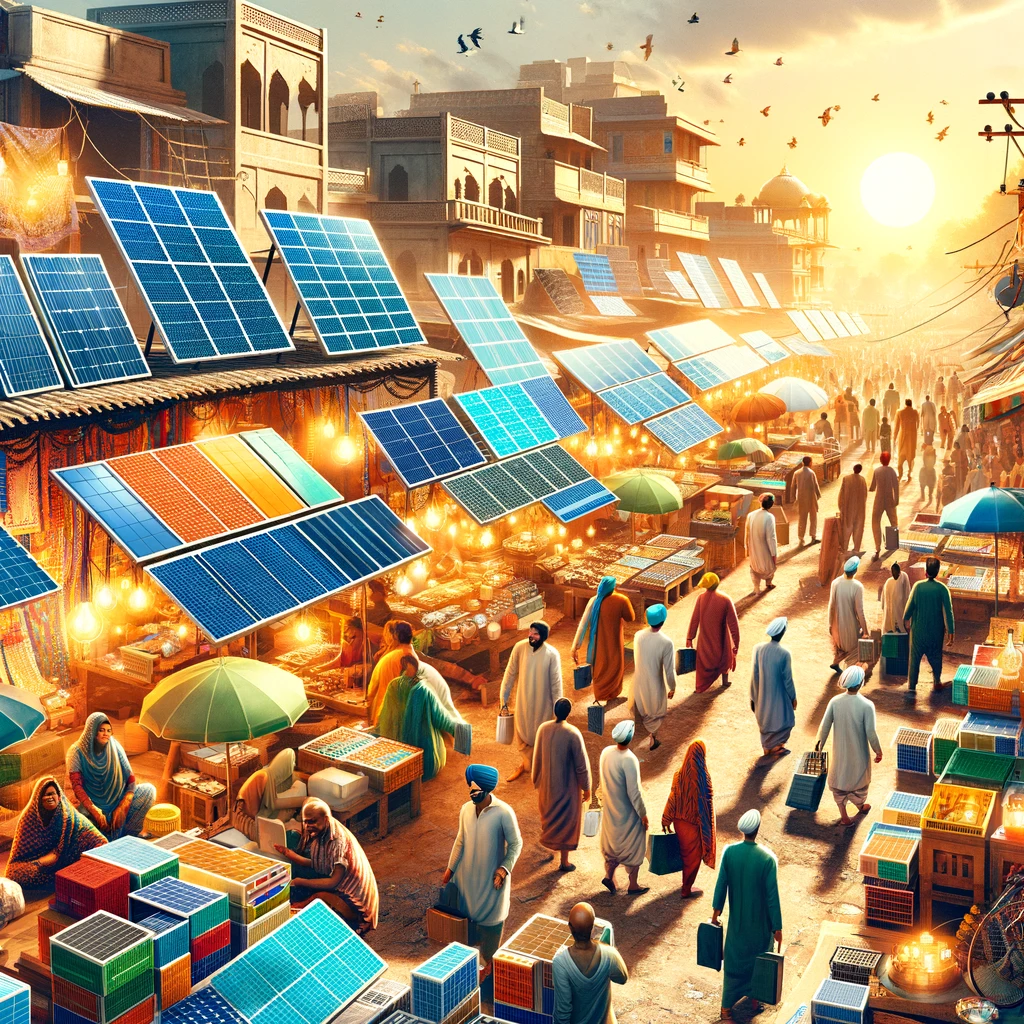India has seen tremendous growth in solar energy adoption over the last decade. As more households and businesses look to harness the power of the sun to meet their energy needs, 100 watt solar panels have emerged as a popular option. But what exactly are these panels, what do they cost, and are they the right fit for you? This comprehensive guide breaks it all down.
An Introduction to 100 Watt Solar Panels
100 watt solar panels are photovoltaic panels designed to produce 100 Watt Solar Panel Price of electricity when exposed to peak sunlight conditions. With solar panel wattage measuring output, 100W panels can power small appliances and electronics. They work by absorbing sunlight and converting it into usable alternating current (AC) electricity through semiconductors in the panel.

A typical 100 watt solar panel has an average efficiency rating of 15-18%
These solar panels represent an affordable, entry-level option for residential solar energy systems. Their small size keeps costs down, while still providing enough power for limited electricity needs.
Common uses for 100W solar systems include:
- Charging LED lights, fans, laptops and phones
- Powering a small TV or other basic electronics
- Running small DC appliances and gadgets
- Charging a 12V battery bank for basic backup power
100W solar panels strike the right balance between price and output for rural or urban households looking to minimize electricity bills. Their plug-and-play simplicity also makes adoption easy.
Cost of 1100 Watt Solar Panel Price in India
100 Watt Solar Panel Price depends on various factors like brand, warranty, efficiency, and more. On average, a 100 watt solar panel costs between Rs. 3,000 to Rs. 4,500 in India as of 2023, with several options across various brands.
Breakdown by Brand
The cost variation allows consumers to find the best match for their budget and needs. Here is a quick brand-wise price breakdown:
- Vikram Solar – Starts at Rs. 3,000
- Patanjali Solar – Rs. 3,500
- Luminous Solar – Rs. 3,800
- Havells Solar – Rs. 4,000
- Tata Power Solar – Rs. 4,500

Prices are approximate for 100W polycrystalline panels from major solar brands in India
Higher-end brands promise better efficiency and product warranty periods despite the increased rates. Consumers must evaluate their budget, quality needs, and expected solar yield to find the optimal balance.
Government Subsidies
Fortunately, the Indian government aims to promote renewable energy adoption by offering generous subsidies. As part of the Jawaharlal Nehru National Solar Mission, consumers can obtain a 40% subsidy on the initial purchase and installation cost of 1100 Watt Solar Panel Price from approved vendors. This significantly reduces the effective out-of-pocket investment, allowing faster ROI.
Types of 100W Solar Panels
While affordable 100 Watt Solar Panel Price were mostly polycrystalline earlier, monocrystalline variants have recently gained ground. Here is an overview comparing the two dominant solar panel technologies in India’s 100W category:
| Parameter | Monocrystalline Solar Panels | Polycrystalline Solar Panels |
|---|---|---|
| Cost | Premium pricing from ₹4,000 onwards | Budget rates between ₹3,000-4,000 |
| Efficiency | 16-22% | 14-18% |
| Appearance | Even black color, rounded edges | Varied blue hue, squared edges |
| Lifespan | 25-35 years | 22-28 years |
| Pros | Higher efficiency in same space, increased energy yield over life | Lower upfront cost |
| Cons | Expensive compared to polycrystalline | Lower total energy output |
Monos boast higher solar cell efficiency allowing increased energy generation from the same roof area. So the ₹500-1,000 premium over budget polys pays off over time through superior productivity.
Homes and businesses must carefully weigh their long term goals v/s limited budgets before picking between mono vs poly.
Why Efficiency Matters in Solar Panels
We touched upon efficiency as a key differntiator earlier. But why exactly does it matter so much?
Put simply, higher efficiency solar panels convert a greater percentage of sunlight into electrical output. So 22% efficient 100W monos generate more energy over time than 16% efficient polys with the same rated wattage.
This conversion rate gets heavily impacted by panel material, temperature coefficients, manufacturing quality and shadowing losses. Finding the optimal balance contributes to a long-lasting and productive rooftop solar system.
Over 25 years, an 18% efficient panel outpaces a 15% efficient option by over 15% in lifetime energy production, despite their identical 100W ratings.
Now with solar panel prices starting at just ₹3 per watt, an extra ₹500-1,000 investment in premium efficiency pays for itself through an additional 1,500-3,000 units of free electricity over 25 years. Hence spending a little more upfront on high-quality solar panels ensures better returns for decades down the line.
Current Market Dynamics of Solar Power in India

Beyond small residential setups, solar energy has emerged into a flourishing commercial industry in India. The last five years have seen average solar tariffs drop below ₹3 thanks to large-scale projects and improving technology.
In fact by 2023, the levelized cost of solar electricity matches imported coal power cost. Better pricing coupled with the renewable aspect has led India to set an ambitious 450 GW solar capacity target by 2030.
Current estimates peg the average rooftop solar cost at approximately ₹55 per watt in India end-2023. So a 1kW (1,000 Watt) rooftop system would cost ₹55,000 before subsidies.
With such exponential industry growth, solar costs should continue their downward trend as adoption rises. Thus the time has never been better for Indian homes and organizations to adopt rooftop solar.
Concluding Thoughts
100 watt solar panels present an affordable and efficient option to utilize solar energy for basic electricity needs, especially with added government subsidies. As India continues boosting renewable power adoption, their accessibility and commercial viability shall only improve.
Hopefully this guide offered you a comprehensive snapshot of 100W solar panels—their pricing, types, efficiency nuances, and market trends as of 2023. Make sure to evaluate your household’s needs and budget constraints before deciding on the right solution for long-term savings.
The sun is shining bright on India’s clean energy landscape—will you look to harness its limitless potential?
This guide aims to provide helpful information but does not substitute expert solar consultancy. Please contact a certified solar installer/vendor for personalized recommendations based on application requirements.
Recommended resources: MNRE Channel Partners, TERI Consultancy Services








